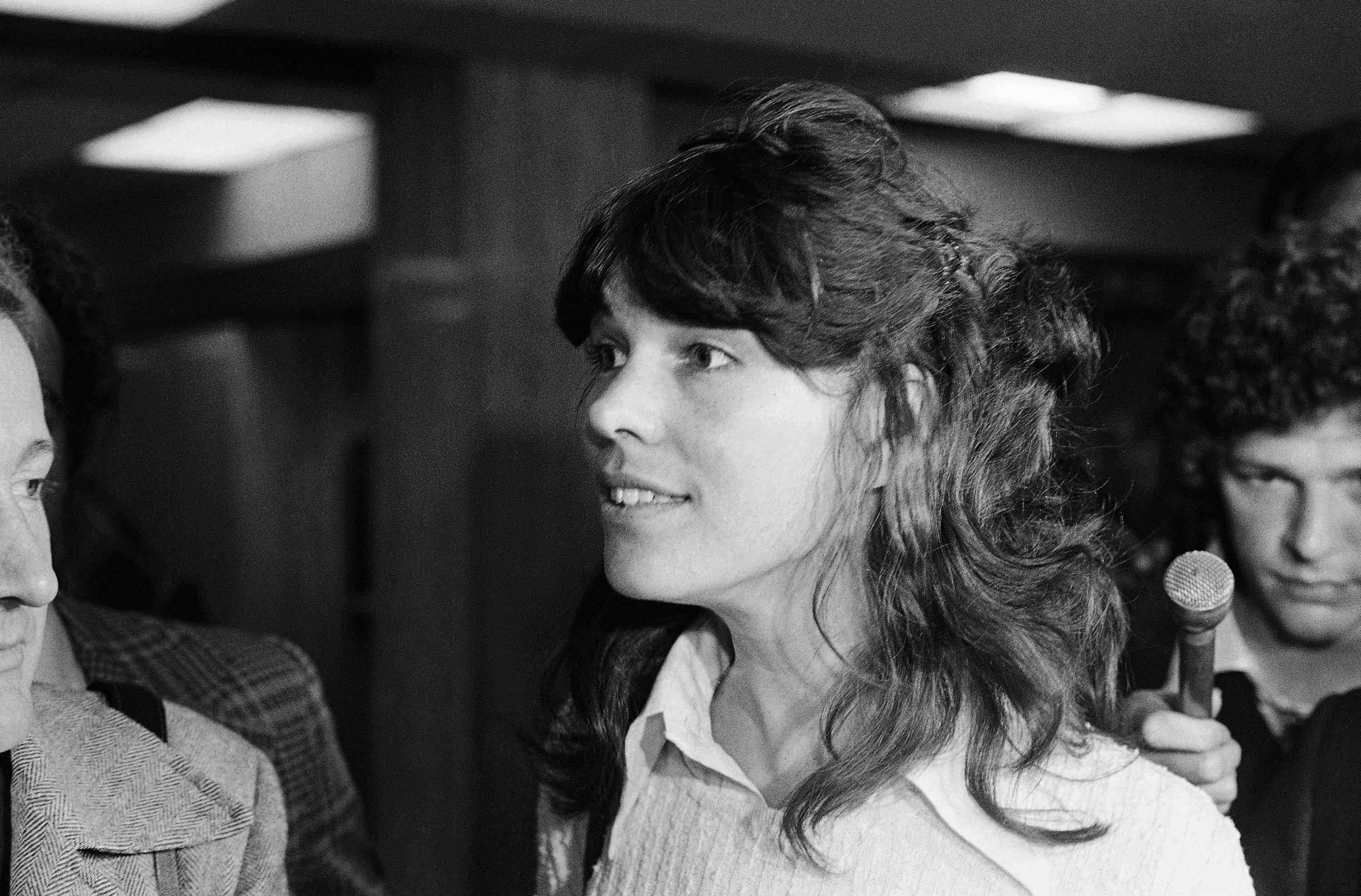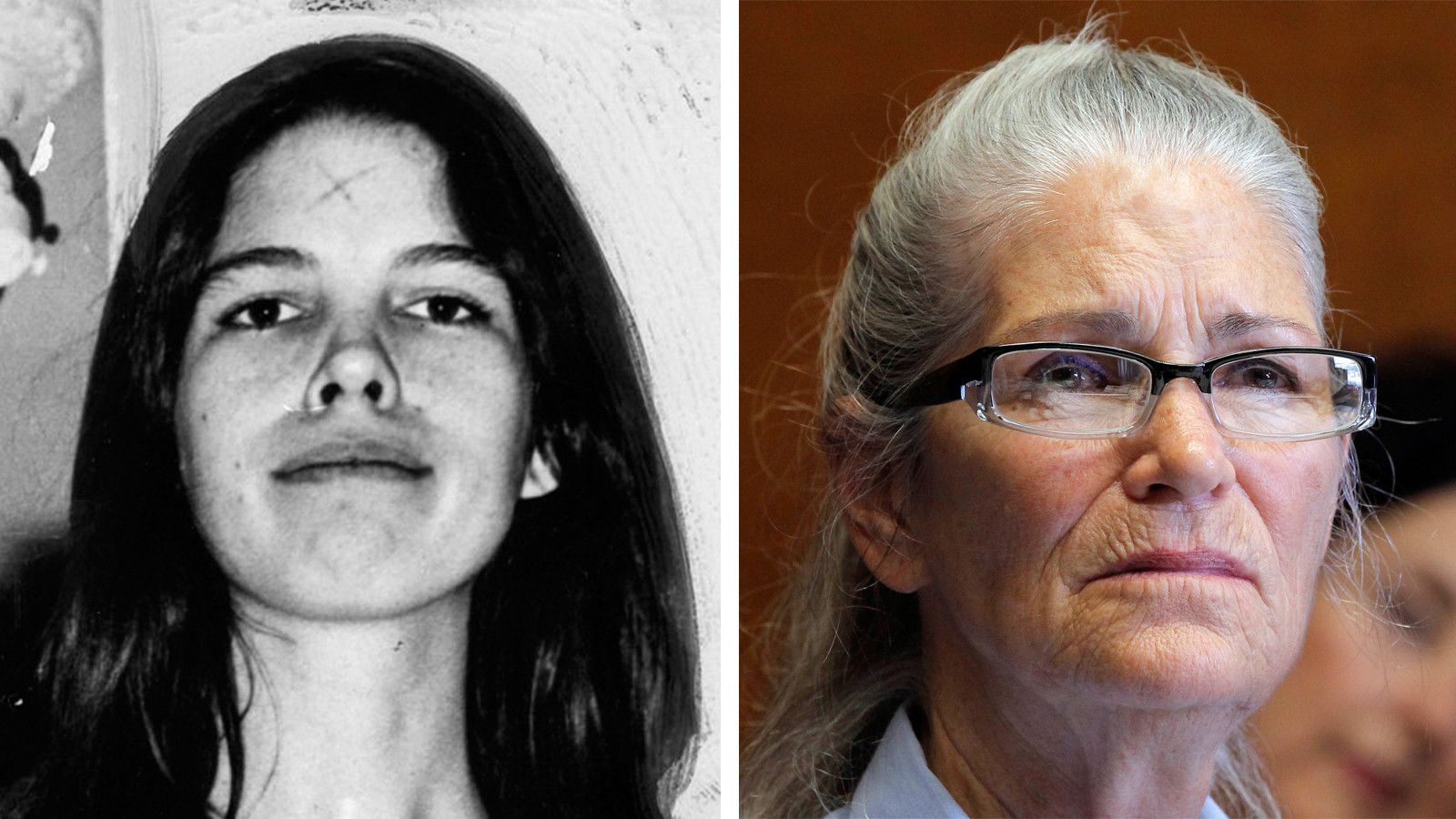Leslie Van Houten is one of the most infamous figures associated with the Manson Family, a cult-like group responsible for some of the most shocking crimes in American history. Her involvement in the brutal murders of 1969 has made her a focal point of fascination and horror for decades. But who exactly is Leslie Van Houten? This article delves into her life, crimes, and the ongoing debate surrounding her parole.
Beyond the headlines and sensational stories, Leslie Van Houten's story is a complex narrative of manipulation, tragedy, and redemption. As we explore her life, we uncover the factors that led her down a dark path and the efforts she has made to reform herself while serving a life sentence.
This article aims to provide an in-depth understanding of Leslie Van Houten, her involvement with the Manson Family, and the implications of her actions on society. By examining her story, we hope to shed light on the broader issues of cult psychology, criminal justice, and the potential for rehabilitation.
Table of Contents
- Biography of Leslie Van Houten
- Early Life and Background
- The Manson Family and Leslie's Involvement
- The Crimes: A Detailed Account
- The Trial and Sentencing
- Leslie Van Houten's Parole Hearings
- Cult Psychology and Manipulation
- Rehabilitation and Reform Efforts
- The Legacy of Leslie Van Houten
- Conclusion
Biography of Leslie Van Houten
Leslie Van Houten, born on August 23, 1949, in Redondo Beach, California, became one of the youngest and most notorious members of Charles Manson's cult. Her life took a dramatic turn when she became involved with the Manson Family, a group responsible for a series of brutal murders in Los Angeles in 1969. Below is a brief overview of her personal information:
| Full Name | Leslie Van Houten |
|---|---|
| Date of Birth | August 23, 1949 |
| Place of Birth | Redondo Beach, California |
| Known For | Member of the Manson Family; involvement in the Sharon Tate murders |
| Current Status | Serving a life sentence in the California Institution for Women |
Early Life and Background
Leslie Van Houten's early life was marked by a relatively normal upbringing. She grew up in a middle-class family with supportive parents. However, her teenage years saw a shift in her behavior as she became more rebellious and sought independence. This period of her life set the stage for her eventual involvement with the Manson Family.
Leslie's decision to leave home and join Charles Manson's group was influenced by her desire to break free from societal norms and seek a sense of belonging. At just 19 years old, she found herself deeply entrenched in Manson's charismatic and manipulative world.
The Manson Family and Leslie's Involvement
The Manson Family was a pseudo-religious cult led by Charles Manson, who exploited the vulnerabilities of young people in the late 1960s. Leslie Van Houten became one of Manson's most loyal followers, drawn into his twisted ideology of violence and chaos.
Leslie Van Houten's Role in the Cult
Leslie played a significant role in the Manson Family's operations. She was known for her unwavering loyalty to Manson and her participation in various criminal activities. Her involvement in the murders of 1969 remains the most infamous aspect of her life.
- Leslie was present during the murders of Leno and Rosemary LaBianca.
- She followed Manson's orders without question, demonstrating the extent of his influence over her.
- Her actions during these crimes were driven by her belief in Manson's apocalyptic vision.
The Crimes: A Detailed Account
The murders committed by the Manson Family shocked the nation and left an indelible mark on American history. Leslie Van Houten's involvement in these heinous acts is a critical part of her story.
Key Details of the Crimes
On the night of August 9-10, 1969, Leslie Van Houten, along with other members of the Manson Family, carried out the brutal murders of Leno and Rosemary LaBianca. The victims were stabbed multiple times in their Los Angeles home, leaving a gruesome scene that captured the nation's attention.
According to court records and testimonies, Leslie's role in the murders was significant. She helped restrain the victims and participated in the violent acts, all under Manson's orders. This level of involvement solidified her place as one of the key figures in the Manson Family's criminal enterprise.
The Trial and Sentencing
Leslie Van Houten's trial was a highly publicized event that drew widespread attention. Along with other members of the Manson Family, she faced charges of first-degree murder and conspiracy to commit murder.
Key Events During the Trial
- The trial began in June 1970 and lasted several months, capturing the nation's attention.
- Leslie was found guilty of all charges and sentenced to death, which was later commuted to life imprisonment due to California's abolition of the death penalty in 1972.
- During the trial, Leslie maintained that she was under Manson's influence and acted out of loyalty to him.
Leslie Van Houten's Parole Hearings
Over the years, Leslie Van Houten has appeared before parole boards numerous times, seeking release from prison. Her parole hearings have become a focal point of public debate, with strong arguments both for and against her release.
Arguments For and Against Parole
- For Parole: Supporters argue that Leslie has shown genuine remorse and has dedicated her life to self-improvement while in prison. She has completed numerous educational programs and worked as a mentor to other inmates.
- Against Parole: Opponents believe that Leslie's crimes were so heinous that she should remain in prison for life. They argue that her release would undermine justice and disrespect the memory of the victims.
Cult Psychology and Manipulation
Understanding Leslie Van Houten's involvement with the Manson Family requires an examination of cult psychology and manipulation tactics. Charles Manson's ability to control and influence young people like Leslie is a critical factor in her story.
How Manson Manipulated His Followers
- Manson used charisma, fear, and promises of a better life to recruit and control his followers.
- He exploited the vulnerabilities of young people who felt disconnected from society.
- Leslie's susceptibility to Manson's influence highlights the dangers of cult indoctrination and the power of charismatic leaders.
Rehabilitation and Reform Efforts
During her decades in prison, Leslie Van Houten has made significant efforts to reform herself. Her journey of self-improvement and rehabilitation is a testament to her potential for change.
Leslie's Contributions to Prison Life
- She has earned multiple degrees, including a bachelor's degree in psychology.
- Leslie has worked as a mentor to other inmates, helping them overcome addiction and improve their lives.
- Her efforts to educate herself and others demonstrate her commitment to personal growth and redemption.
The Legacy of Leslie Van Houten
Leslie Van Houten's legacy is a complex and multifaceted one. While she remains associated with some of the most infamous crimes in American history, her efforts at rehabilitation and reform have earned her sympathy from some quarters.
Her story serves as a cautionary tale about the dangers of cults and the power of manipulation. It also raises important questions about the potential for redemption and the fairness of the criminal justice system.
Conclusion
Leslie Van Houten's life is a compelling and tragic narrative of manipulation, crime, and the quest for redemption. From her involvement with the Manson Family to her ongoing efforts at self-improvement, her story continues to captivate and challenge public opinion.
As we reflect on her life and actions, it is essential to consider the broader implications of her case. The debate surrounding her parole hearings highlights the complexities of justice, rehabilitation, and societal forgiveness.
We invite you to share your thoughts and opinions in the comments section below. Additionally, feel free to explore other articles on our website for more in-depth insights into crime, psychology, and justice. Together, we can continue to explore the complexities of human behavior and the justice system.
Sources:
- Biography.com
- CrimeReads
- Los Angeles Times


